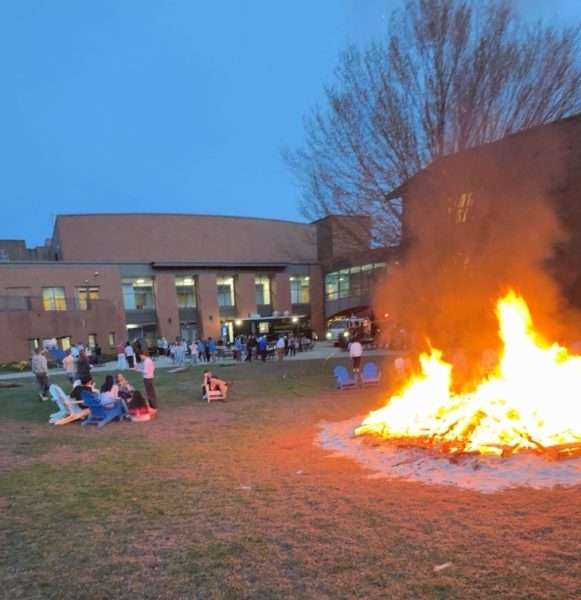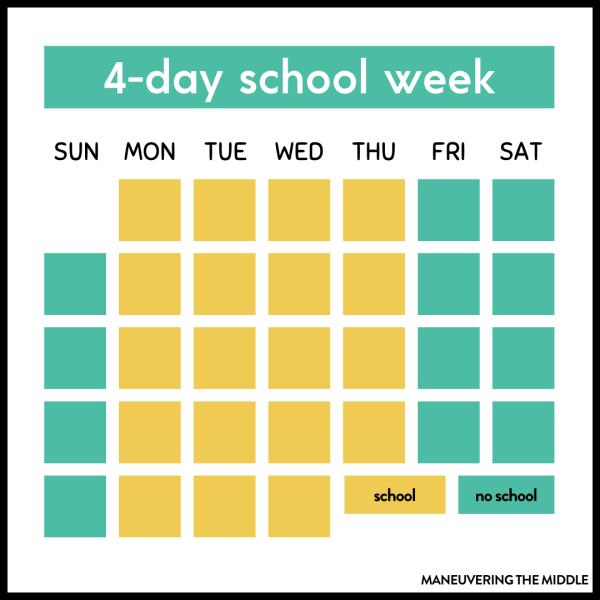Public School Needs to Start Later
This outdated system needs to be readdressed in the students’ best interest.
This student couldn’t help but fall asleep in class.
Here’s an anecdote that I think perfectly describes the high school experience: While on a short break from class, my friend told me she can’t remember the last time she has gone to bed before 12:00 am, additionally she recalled when I once went to bed at 8:30 and called it “talent”.
The issue is not that students are purposely staying up late at night, but the outdated school schedules that do not accommodate real science. As referenced by Everett (Washington) Public Schools, Sleep Blogger, Leigh Ann Morgan notes that “adolescents naturally stay up later and get up later because of how their bodies release melatonin, a hormone that regulates sleep.” She even adds “several studies show that teens cannot get out of this melatonin-induced sleep mode until at least 8:00 a.m.” This brings me to my next point, which is the audacity of public school start times.

Anyone that has gone through the rigorous twelve years of public school education knows the drag of getting up before sunrise, yet it is rarely looked at as something that can be changed. It all began in the later half of the twentieth century when schools decided to stagger their school buses to cut costs, with the high schools being the earliest to start. This was a financial decision not based on much else.
The Center for Disease Control (CDC) recommends “teenagers aged 13–18 years should sleep 8–10 hours”. Logistically this is not possible for most students. At Darien High School, school starts at 7:40 am. In order to get the minimum 8 hours of sleep, you would need to go to sleep at least 10/10:30, depending on what time you wake up. While this may sound reasonable, students try to keep a work/life balance outside of school and an increasing number of students are participating in extracurricular activities. Not to mention the loads of homework.
Now here is the proposal, which many schools around the country have started to try this in their districts. Pushing back school start times even by 30 minutes could substantially help millions of students perform better, live a healthier lifestyle, and avoid exhaustion-related risks.
In a U.S. study that compared sleep to test scores, the results were clear, but not shocking to me. Nick Morrison from Forbes Magazine describes “those who averaged 8.1 hours a night scored mostly As, while those averaging 7.3 hours a night scored mostly Cs.” If the data does not speak for itself, I can contest from personal experience that my sleep reflect my success in school.
It is not only a matter of improved scores, but one of safety. Many new drivers coming to school are putting themselves at risk. Morgan notes that “drowsiness contributes to more than 100,000 crashes per year.” While this data is not only for high schoolers, according to Senior Behavioral and Social Scientist, Wendy M. Troxel states “high schoolers account for 50%.” This is an alarming statistic that is not on many people’s radar.

If you are in the process or have already gone through driving classes, I am 99% sure that you have heard the phrase ‘drowsy driving is just as bad as drunk driving.’ According to Danielle Pacheco of the Sleep Foundation, in her article on Drowsy vs. Drunk driving that was reviewed by Dr. Anis Rehman states “after 24 hours awake, impairment is equivalent to a blood alcohol content of 0.1%” while “0.08% blood alcohol content is the current legal limit in most states.”
If these statistics are not enough to sway you, then the most glaring issue are the effects on physical and mental health from unhealthy sleeping habits. Not only do you feel groggy and not alert to do tasks, but continually losing sleep could lead to chronic health issues in the future. According to the National Heart, Lung, and Blood Institute, “sleep deficiency is linked to many chronic health problems, including heart disease, kidney disease, high blood pressure, diabetes, stroke, obesity, and depression.” While the administration claims they are preparing us for our future, they may be causing detrimental effects to our health.

Mental health awareness has become more accepted and discussed in our daily lives. While there is a big emphasis on helping people overcome their challenges, it is possible that we are neglecting a major source for many of these issues. According to Mind.org, “poor sleep can trigger mania, psychosis or paranoia, or make existing symptoms worse.”
The biggest reason people are against these changes are due to scheduling. While it may be true that this would impact transportation, extracurricular activities, and working parents, it is important to remember that this is not an overnight process. This would need the support from the entire community, and overall, a lot of planning.
Do not let this scare you. According to the National Center for Education Statistics, 43% of high schools in America start from 8-8:30. There have been successful transitions, even in Greenwich, CT where public schools start at 8:30.
As we continue in a more progressive society, it is time to address the widely outdated method for school start times in America.

Julia is a junior who started writing for Neirad in the fall of 2020. She loves writing about current events, popular culture, and school news. When she's...










